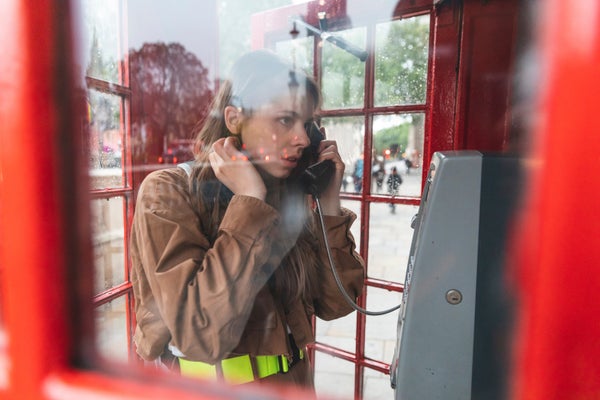[CLIP: My Fair Lady (Eliza Doolittle briefly chats with Professor Henry Higgins)]
Why can people speaking the same language have such different accents? The short answer: new accents begin to develop when isolated groups of speakers start making nearly imperceptible changes to the way they pronounce words.
“Accent development is the first step in language change. Fifteen hundred years ago, languages like English, Dutch and Swedish were actually all dialects of the same language. But of course, then they diversified over time.”
On supporting science journalism
If you're enjoying this article, consider supporting our award-winning journalism by subscribing. By purchasing a subscription you are helping to ensure the future of impactful stories about the discoveries and ideas shaping our world today.
University of Munich linguist Jonathan Harrington. He’s interested in how accents first get started. But because of global communication, most communities are no longer linguistically isolated, and audio recording equipment didn’t exist back when more of them were. So how to capture the early stages of accent formation today?
Harrington and his team turned to members of the British Antarctic Survey, who speak with a variety of English accents.
“When you are in Antarctica during the winter period, then there’s no way in, and there’s no way out. So they were isolated together, and they interacted with each other, and they have to cooperate with each other.”
Harrington’s team recorded the winterers reciting a list of words before they left for Antarctica. Then, while there, the winterers recorded themselves saying the same words four more times. The linguists then analyzed the recordings—in particular, resonances: the way airflow shapes sound.
“Resonances are the defining acoustic features, which let you distinguish one vowel from the next.”
And even during their short time in Antarctica, the way the winterers produced certain vowels began to converge, averaging out the resonances. For example, at the beginning of the study, some people produced the “oo in “food” at the front of the mouth like this:
[CLIP: “Food” at front]
While others used the back of the mouth:
[CLIP: “Food” at back]
But they began to sound more similar over time.
In addition, the winterers invented slightly new ways of pronouncing vowels, such as shifting the production of the second syllable in the word “window” very slightly forward in the vocal tract. The linguists think these small changes document the very beginnings a common accent.The study is in the Journal of the Acoustical Society of America. [Jonathan Harrington et al., Phonetic change in an Antarctic winter]
Harrington says the research isn’t just relevant for understanding Earth’s colonial past. He thinks there’s every reason to expect that prolonged isolation will cause astronauts on Mars missions to end up with an out-of-this world accent.
—Susanne Bard
[The above text is a transcript of this podcast.]

